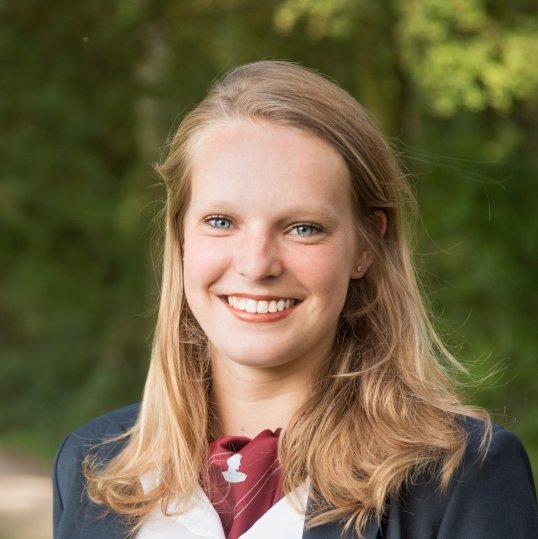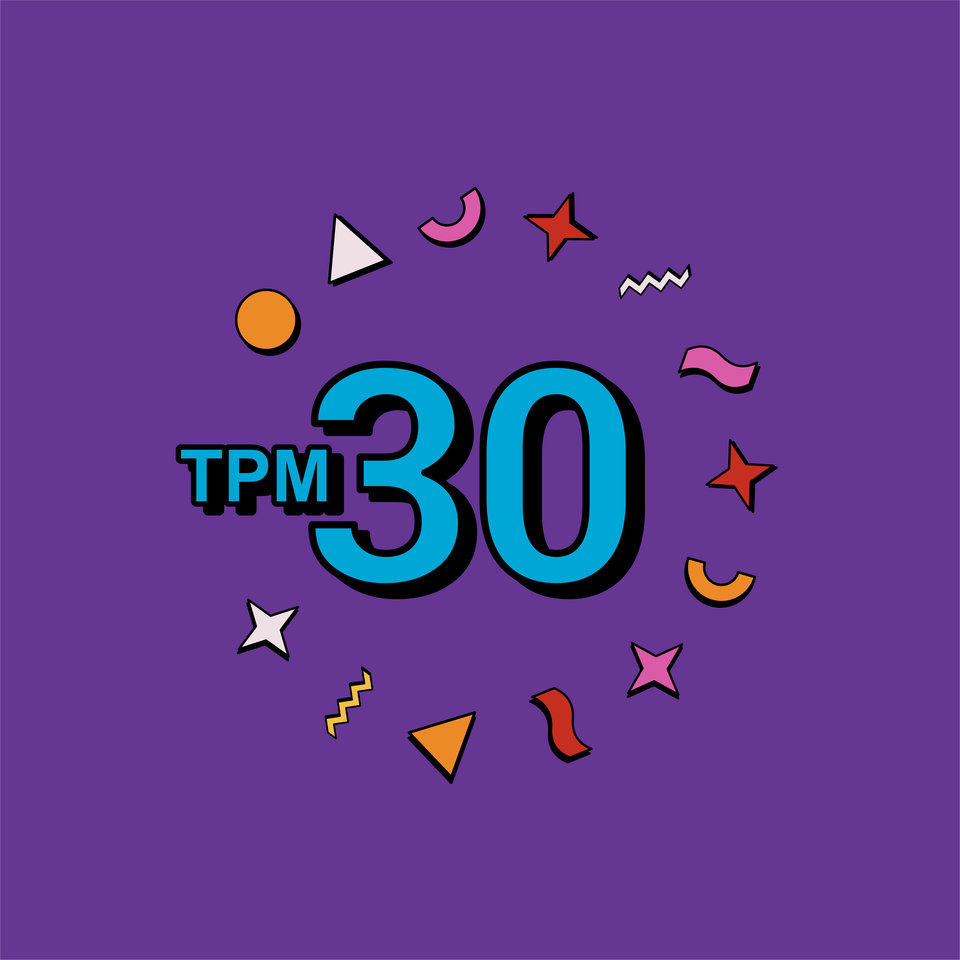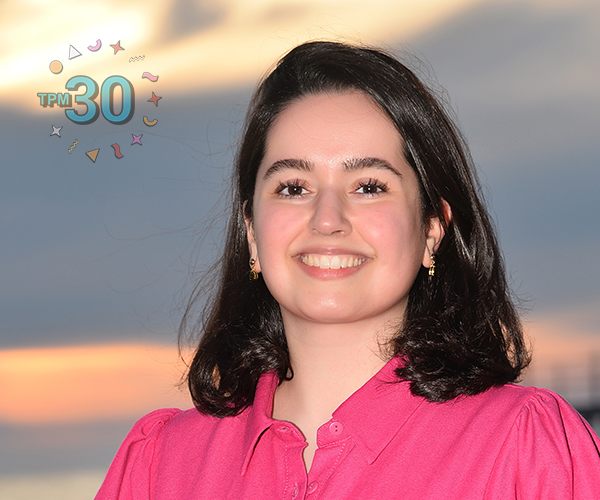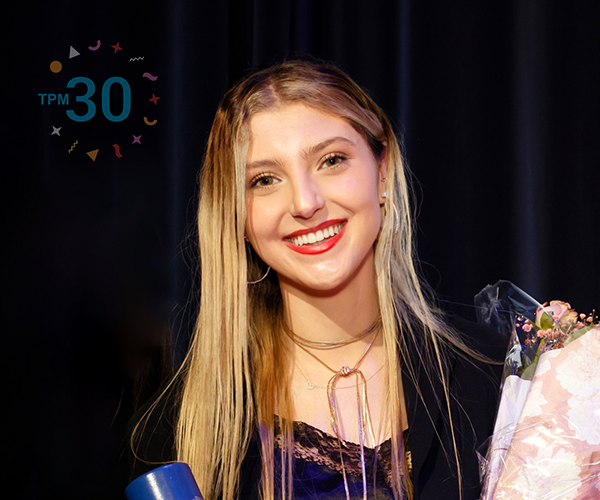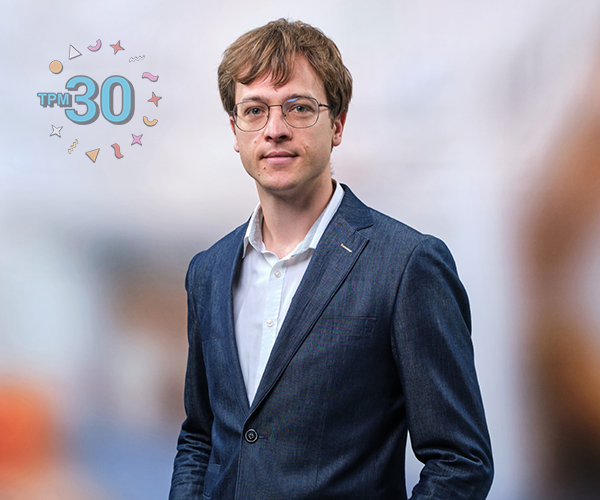TPM Portraits: Isabelle van Schilt
Isabelle van Schilt started her BSc Technische Bestuurskunde ten years ago and is now pursuing her PhD at the faculty of TPM. During her student years, she played an active role in the study association Curius and did a research visit at the prestigious MIT. These experiences proved immensely valuable to her current work as a researcher and made her see TB in a different light. "What we do here is unique."
Even during her secondary school years, Isabelle van Schilt already knew that she wanted to pursue a career in engineering. "But I wasn't sure yet which degree would suit me best. During an open day at TU Delft, I checked out the BSc degree Technical Mathematics. I found it quite interesting, but my mum didn't think it was for me. She felt it was too mathematical and abstract."
Following her mother's advice, she reluctantly had a look at Technische Bestuurskunde. "Based on the way it was described, I thought TB might not be technical enough. But after the presentation by Ivo Bouwmans, the Director of Studies, that turned out not to be the case. The social aspect appealed to me as well. So, that's how – thanks in part to my mother and Ivo Bouwmans – I ended up choosing TB."
Van Schilt remembers an example from Bouwman's presentation which helped to convince her. "He equated TB students to a Swiss Army knife: they both form a connection between functions. Students are taught in a multifunctional way: you don't learn how to build a bridge or assemble a car, but rather a way of academic thinking that you can apply to all kinds of issues."
Simulating issues
Van Schilt started her studies in 2013. One of the issues she took an interest in was parcel deliveries. "There are technical and social aspects to deliveries. It's not just about how you organise it in terms of transport and logistics, but also about the impact parcel delivery has on the liveability of the environment. This is particularly applicable to big cities with narrow streets, such as Amsterdam. How can we set that all up in a sustainable and efficient way?"
Van Schilt particularly enjoys digitally simulating these types of issues. "Simulations of reality offer new insights and enable us to think about solutions in different ways. Technology, such as AI, can support human decision-making in that regard. I am fascinated by the complementarity of human knowledge and experience and technical resources."
A board year on the Curius board
After obtaining her bachelor's degree, Van Schilt decided to pursue a master's in Engineering and Policy Analysis (EPA). During her second year, she put her master's degree on hold to serve on the board of the Curius study association for a year. "I became Commissioner of Master Education & Career. Representing students in relation to master's level education was one of my responsibilities. Students could talk to me about issues and in turn, I would discuss these with the Director of Education or the master coordinators."
One issue at the time was related to her own master's degree, EPA. "Halfway through the first year of my master's, EPA moved from Delft to The Hague. We realised that it was quite a challenge to convey the character of TU Delft over there. A student dispute in The Hague has been set up to enhance the connection with TU Delft and Curius.
Van Schilt learnt many valuable lessons during her year on the board. "Among other things, organising events, such as activities around the 25th anniversary of TB and Curius, I also learnt a lot about communication. For example, how to convey a message in a constructive manner, and how to communicate with people at different levels. I also learnt how to structure plans and projects. Everything I've learnt comes in handy for doing research."
Seeing TB in a different light at MIT
During her master's, Van Schilt also did a research internship at the Massachusetts Institute of Technology (MIT). She was given this opportunity partly because she won an award with her bachelor thesis at Vereniging Logistiek Management (the Logistics Management Association), which expanded her network. "Just like TU Delft, MIT is one of the world's leading universities of technology. Everything at MIT clearly conveyed an air of excellence, and that its students and faculty were striving to uphold that high level. Personally, I was keen to explore whether doing research suited me. I wrote my first paper at MIT, and I really enjoyed it."
Van Schilt started seeing TB in a different light in Boston. "While I learnt so much from others, people certainly also learnt from me. For example, when it comes to decision making under deep uncertainty and the use of simulation models such as systems dynamic modelling. TB is at the forefront of academia in the field of simulating complex systems, which made me feel quite proud when I was in the US. Taking myself outside of TU Delft for a while made me see how unique, good and important it is what we do at TB."
Choice of PhD research
Following her thesis at KLM, Van Schilt was faced with a choice: cross over to the business side or stay in academia. "My initial plan was to work at a company, such as KLM, for two years and then do a PhD. Staying at KLM was difficult because they needed to make significant cuts there due to COVID-19. Coincidentally, Alexander Verbraeck, now my promotor, with whom I had been in contact with since my bachelor thesis, came up with some interesting and challenging PhD topics. After that, it was an easy decision."
Since May 2020 Van Schilt has been working with Nationaal Politielab AI (National Police AI Lab) to conduct her research on criminal supply chains. "One example is the illegal trade in counterfeit medical face coverings. To prevent these from entering the market, you need to intervene early on in the chain. The problem is that very little data is available on exactly where these face coverings come from, or the route they take."
For her PhD, Van Schilt researches how to provide insight into the supply chain, even with a limited amount of data. "To do this, I create many simulation models using the data that does exist and interviews with experts. With the use of optimization algorithms, this study generates an ensemble of configurations of the most plausible supply chain scenarios, given the sparse data. These scenarios provide insights to the police for further investigations."
Promoting PhDs
Van Schilt has never regretted her decision to pursue a PhD. "It gives me so much freedom. I can largely determine the content of the research myself, visit interesting conferences worldwide, work with great people, and have plenty of personal responsibility. I sometimes find that students do not quite know exactly what a PhD entails. There are still many opportunities in that area. I feel that obtaining a doctoral degree deserves to be promoted more."
To connect is to strengthen
Van Schilt also feels that TB could do more to connect education to practice. "Personally, I discovered only relatively late in my student years how we can use our knowledge to benefit businesses and organisations. Collaboration with practitioners in the real world is essential for TB people. It would be useful if collaboration were more incorporated into assignments in the bachelor degree, so that students learn straight away that not everyone's thinking is based on a systems approach."
Van Schilt now sees herself as a true connector – just like a Swiss Army knife. "I love fostering connections between research, researchers and practitioners. Together you can achieve so much more than if you stay in your own bubble. I am not in favour of competition in research either. Rather than looking at how to do better than another, we should be thinking about how to strengthen and enrich each other."

TPM Portraits
In the "TPM Portraits" series, we speak to TPM members right across the faculty. In celebration of TPM's 30th anniversary we have had personal conversations with people who are ( or have been) all part of the TPM community in their own way. What have they experienced within the faculty? What is TPM to them today? And how do they see the future? A new portrait appears every two weeks.

